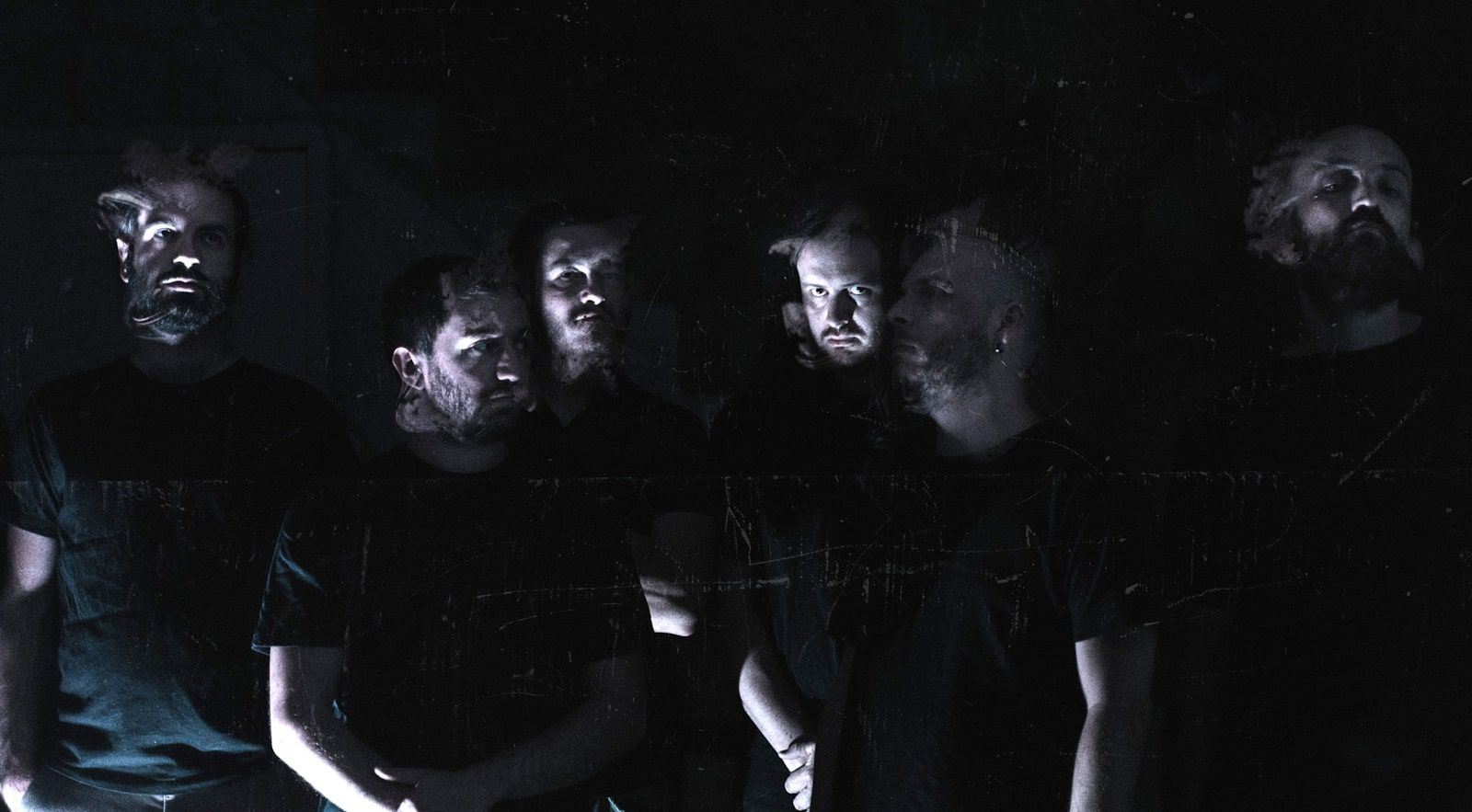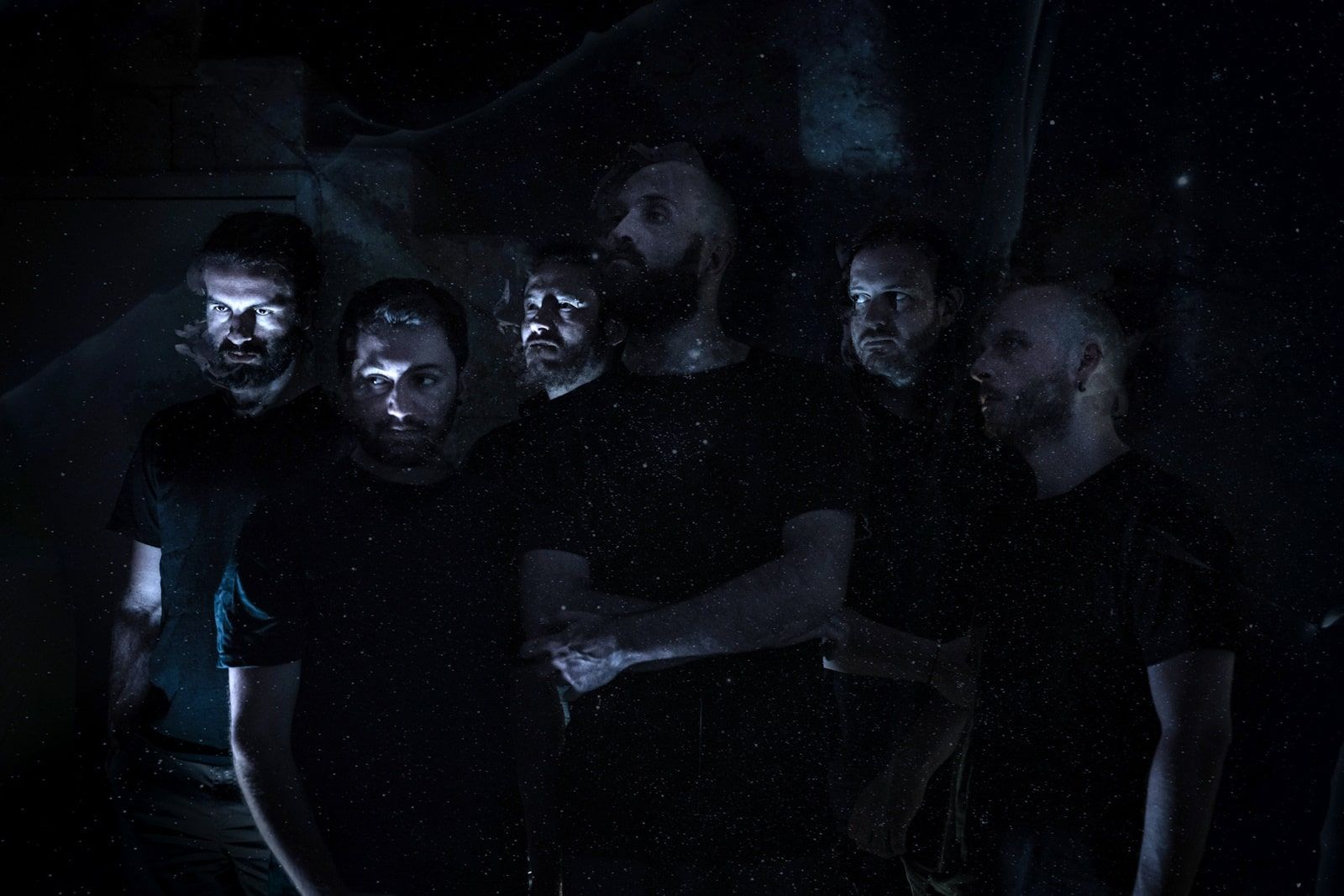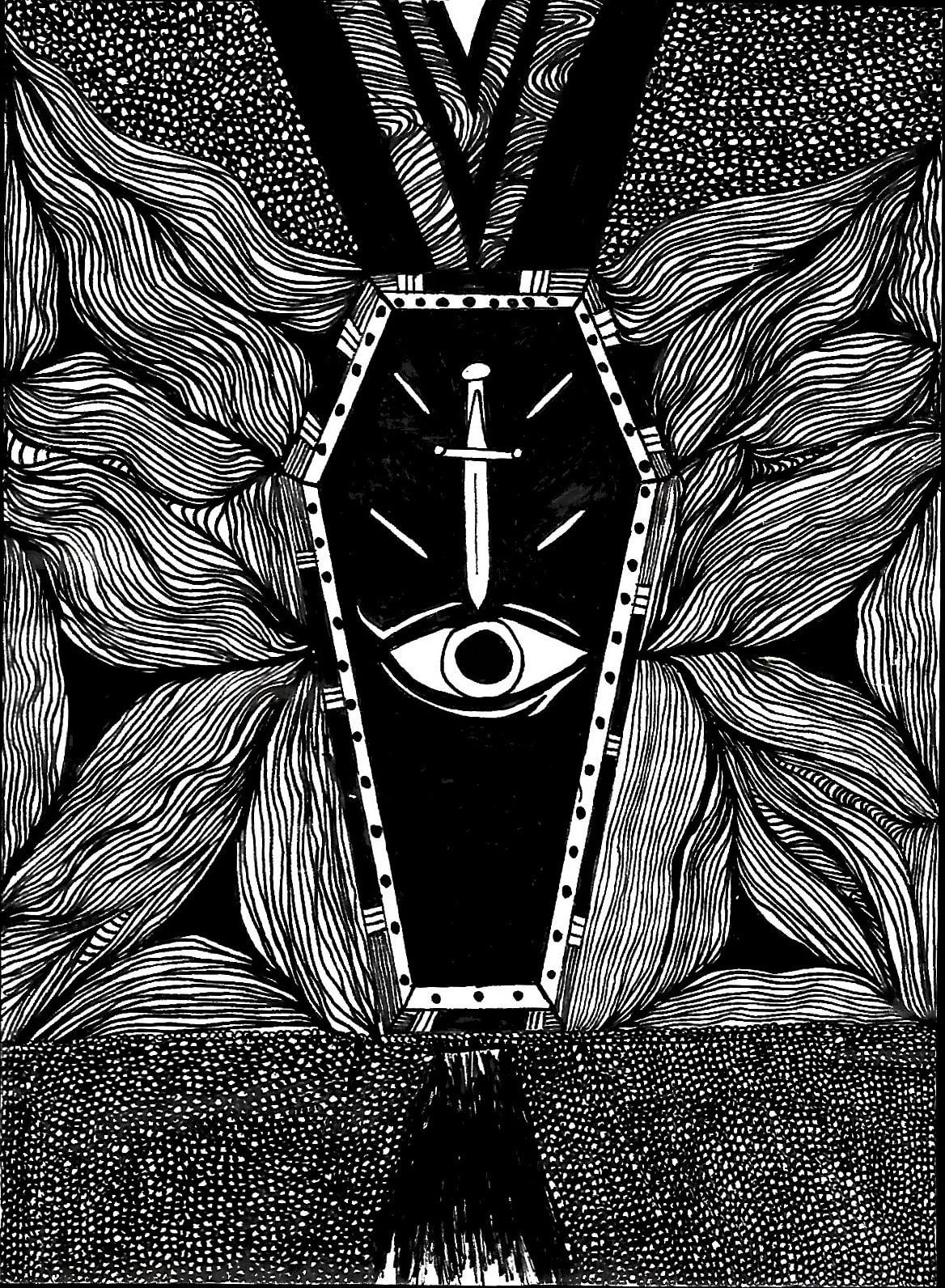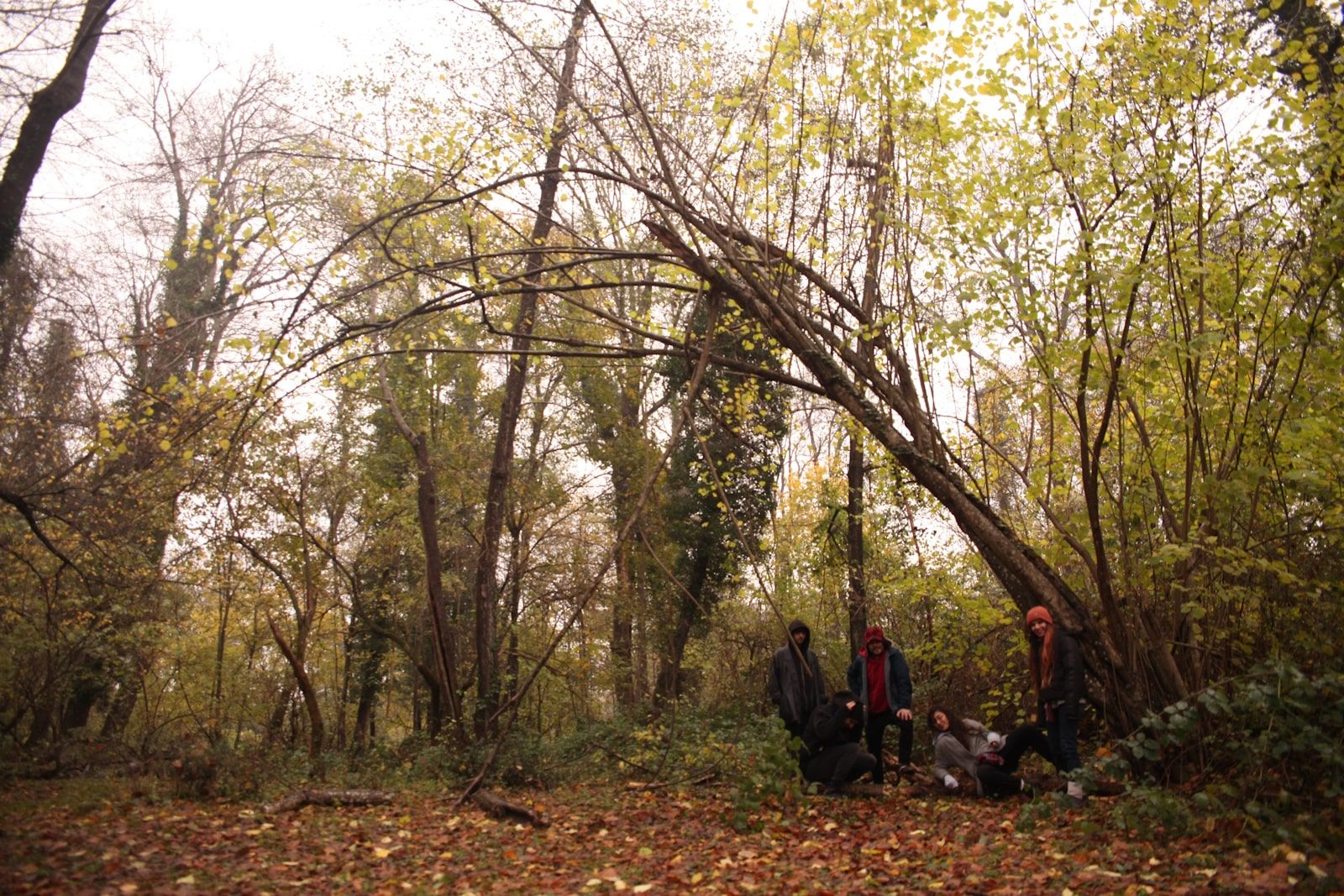Grenoble, a city embraced by the snow-topped French Alps, is now echoing a resonance of another kind – atmospheric post–metal. Bearing this new sound is the band Azimut, and their debut release, “Dans Les Méandres.” Drawing undeniable parallels with revered bands like Isis, Amenra, and Cult of Luna, this offering suggests a sonic journey that is both cathartic and introspective.
Although this is a debut for Azimut, the band boasts a rich lineage of musical expertise and experience.. The members hail from distinguished metal and avant-garde backgrounds, having been part of bands such as Barús, Maïeutiste, Gliesers, Stories Bones Tell, Synapses, and Synematic. Such a pedigree can be witnessed in their early days as a band, sharing the stage with names like Hangman’s Chair, Envy, and Bossk.
A deep emotional facet is evident throughout “Dans Les Méandres.” Their songs evoke poignant emotions, from melancholic atmospheres to the suffocating intensity reminiscent of black or death metal. Yet, their melodies remain gripping and clear, navigating through profound themes impacting them personally.

Choosing to express in their native tongue, French, Azimut delivers sharp commentaries on the human condition and our contemporary world. Their tracks unravel the intricacies of modern society, touching upon themes of narcissism, societal decline, relentless distractions, and a decaying planet.
“Our primary aim at this time is to play as many shows as possible to get our music out there.” – comments the band.
“We’ve been working on it in the shadows for years now, so we’re very eager to see what the response is like. Work on the follow-up record is also well under way, we’ve been experimenting with about half an album’s worth of new tracks, mostly together in a rehearsal setting, which is nice since a lot of Dans Les Méandres was written mid-pandemic, in part remotely. We’re excited about the new music, it seems to be going further in both directions, incorporating a lot of eerie shoegaze atmospheres but also some of our heaviest stuff to date.”

Beyond their post-metal aesthetic, Azimut embraces influences from post-rock realms, nodding to giants like Mogwai or Mono. Yet, what’s intriguing is their seamless incorporation of electronic elements. Their debut LP, a balance of minimalistic phases juxtaposed with explosive moments, promises to be an absorbing experience.
In releasing “Dans Les Méandres,” Azimut showcases a striking balance between their experienced backgrounds and th

e ambitious vision they harbor for their collective future. Set to drop on October 6th, this self-produced album beckons listeners into a thought-provoking odyssey through sound and sentiment.
Today, we’re stoked to give you the full stream of the record, along with the band’s first hand track by track commentary below.
“Desseins Illusoires” introduces the main theme of “Dans Les Méandres”: a hopeful desire for of a brighter future, as if the world in which we live in could heal from all its ills. The song first envelops the listener in this utopian promise, until the harsh reality comes crashing down.
“Echo Limpide” describes the myths of Narcissus and the nymph Echo, in a contemporary vision offering a parallel with society’s addiction to the cult of appearance. The reflection becomes a refuge, leading to a world filled with Narcissus. More broadly, it addresses the staging of the lives of the beings who make up our world.
“Persona Non Grata” draws an idiocratic portrait of a world in distress, where stupidity is praised and rewarded, where erudition and the transmission of knowledge are relegated to the background. The knee-jerk pitfall of nostalgia for a glorious past is also depicted and ridiculed.
“Au Coeur d’une Destinée Erratique” depicts an extremely individualised and self-centred world in which indifference reigns towards one’s fellow human beings, towards authoritarian excesses, towards the planet. Incessant torrents of pointless distractions and mind-numbing entertainment gradually drown out the human qualities of compassion and empathy.

“Douce Frénésie” is the only instrumental track of the album, a nod to the importance that various forms of electronic music carry for Azimut. These influences are scattered throughout the album.
“Catharsis” is a pamphlet against religious excesses and beliefs in general, whatever they may be, when they involve a deprivation of freedom, when critical thinking is replaced by intolerance in all forms.
Preachers are targeted, believers are seen as victims and others pay the price.

“Euphémismes” represents the difficult question of free will in our societies. The ease with which we can fall into overly simplified and polarised thought patterns, unnuanced ideas that are repeated endlessly until acceptance. We become spectators of our own lives: a docile and calibrated humanity revelling in a carefree lack of responsibility.
“Thanatophilie” depicts our societies’ fascination with the morbid. The darkest sides of the human soul feast on voyeurism and the entertainment offered by news stories, wars or other natural disasters. This disease is spreading, feeding humanity with fear and violence.
“Palabres Enflammées” closes the album by addressing the theme of the mother ship of humanity: our dying planet, brought to this state by our toxic lifestyles. A cry of alarm from a desperate and hopeless situation, sustained by endless our propensity to turn a blind eye and focus our attention on any available distractions, thus preventing a favourable outcome.












